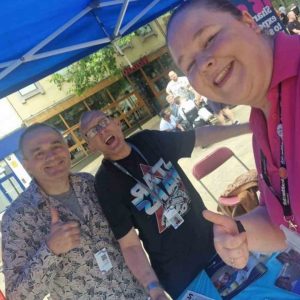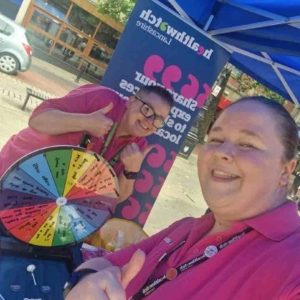Our Impact: Disability Pride Preston
In today’s ‘Our Impact’ report, we visited Disability Pride on Preston Flag market to speak with people about our current project Disability Voices, which focuses on transport and accessibility to health services across Lancashire. Disability Pride is about visibility, empowerment, and community.
This was the second annual Disability Pride in Preston, a community event celebrating the strength, diversity, and voices of disabled people. The People First Self Advocacy team also joined us as an opportunity for them to highlight what they can offer for people with disabilities and what support they can give.

During the engagement event, we spoke with thirty-five people with a range of disabilities. One recurring theme from this engagement was that many people are happy to drive themselves to their appointments, but both parking spaces and the cost to park can be problematic. In some cases, these factors can even cause individuals to cancel their appointments.
“I go to Preston hospital a lot and I drive myself, which is fine, but it’s the cost of the car parks that is the problem. I don’t have a blue badge, so I’m not entitled to free parking. I have found myself cancelling appointments at the hospital as I simply can’t afford the parking, and when I ring for some support, I am told that I can drive myself, so they won’t pick me up and help me.”
The engagement highlighted barriers people who require a wheelchair face when getting to and from appointments, including not being able to get on a bus and feeling isolated when out in the community.

“I have to use a wheelchair a lot and find this is a massive barrier for me. I have had lots of problems with bus companies not putting a ramp out for me or not asking people to move out of the designated wheelchair space when they don’t need it, so I have had to get off the bus. I have been late for appointments as buses are not on time. I now choose not to use my wheelchair when I should, as I find it much harder to access services. I get questioned on public transport as to why I have a NOW card and why I need a wheelchair. I shouldn’t be asked why I need something that helps me; it’s very hard and isolating to hear.”
Conversations on the day varied from hospital transport, to bus services, to driving themselves, confusion over the blue badge and hospital parking. Some people spoken with on the day didn’t have a support network and no one to take them to appointments, so they rely on public transport to take them, but this is not always accessible for them.

